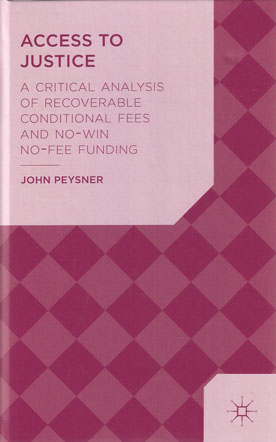We are now closed for the Christmas and New Year period, returning on Monday 5th January 2026. Orders placed during this time will be processed upon our return on 5th January.

Access to Justice addresses a remarkable experiment in the funding of money damage claims - largely personal injury claims - which began in 2000 and which the Government effectively abolished in 2013.
The model - recoverable conditional fees - adopted by the incoming New Labour administration was unique and, for reasons that the book explains, it has remained so.
This book is based on a review of published material, the author's own view as a 'participant' in the process and anonymised semi structured interviews with other participants, from Government; claimant and defendant lawyers and litigation insurers. It covers the development, subsequent amendment and effective abolition of the model.
It examines the process of policy development, the motivation and objectives of the policy makers and the reactions of the parties attempting to grapple with the new system. It asks whether a development process incorporating a range of models addressing the evidence base might have produced a better result: a workable policy based on the core of Government objectives or, possibly, an entirely different model.